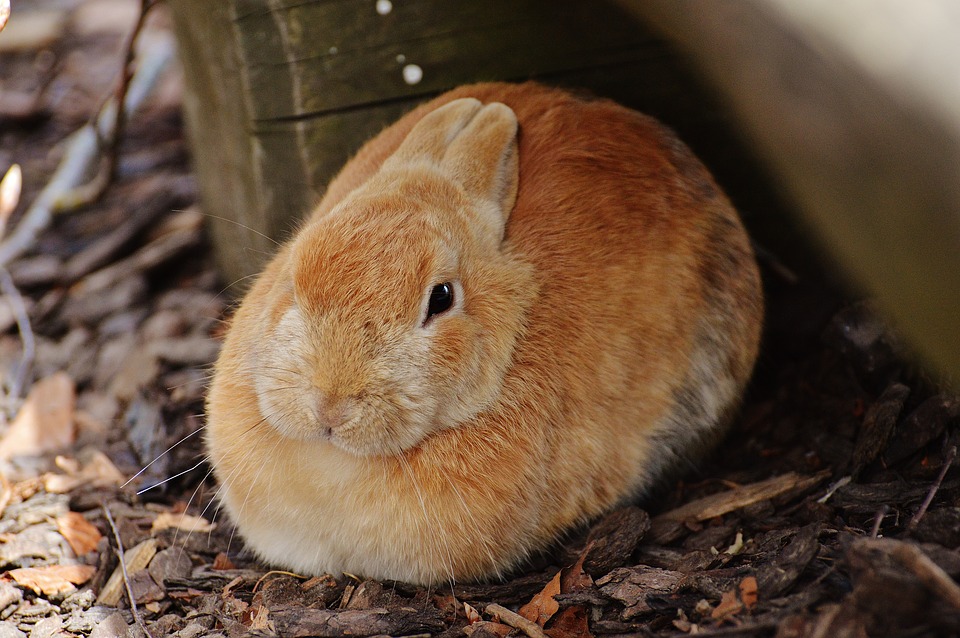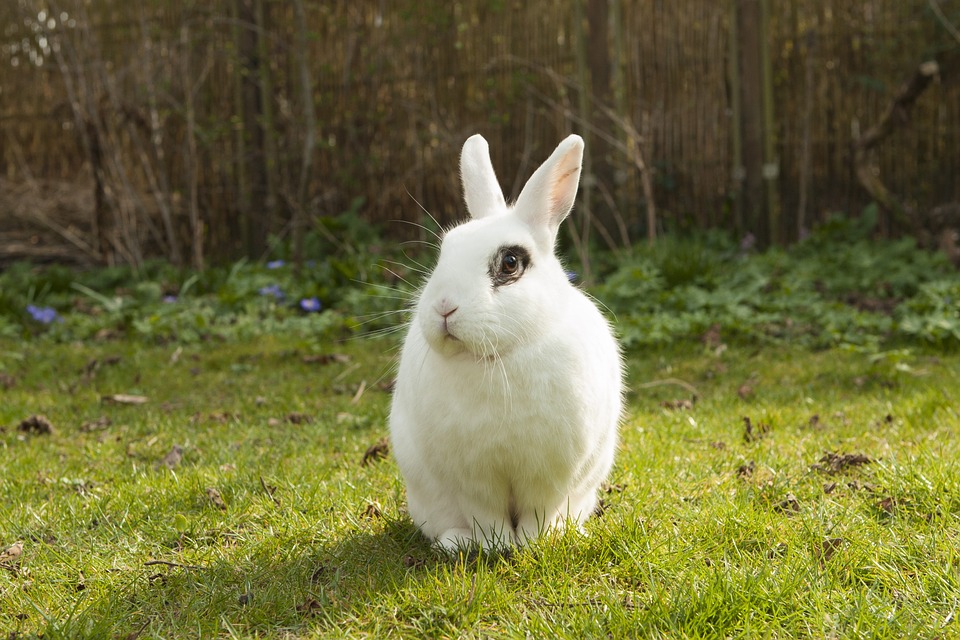This comprehensive guide will delve into the world of rabbit nutrition, exploring the foods that are safe and beneficial for your furry friend. We'll cover the basics of a rabbit's diet, essential nutrients, safe and unsafe foods, and provide tips on feeding your rabbit a healthy and balanced diet, ensuring their well-being and longevity.
Part 1: Understanding the Importance of a Balanced Diet

1.1 The Unique Digestive System of Rabbits
Rabbits possess a unique digestive system that requires a high-fiber diet to function properly. Their gut is designed to process large amounts of plant matter, especially hay, which provides the necessary fiber for optimal digestion and gut health.
1.2 Essential Nutrients for Optimal Rabbit Health
A balanced rabbit diet must include several essential nutrients to support their growth, development, and overall well-being.
- Fiber: This is the cornerstone of a rabbit's diet, playing a critical role in digestion, preventing dental problems, and maintaining a healthy gut microbiome.
- Vitamin C: Rabbits cannot produce their own Vitamin C, making it essential to provide it through their diet. It plays a crucial role in immune function, wound healing, and connective tissue health.
- Vitamin A: This nutrient is essential for vision, growth, and reproduction, and helps support immune function.
- Calcium: Supports bone health, growth, and tooth development. However, an excess of calcium can be detrimental, so it's important to carefully monitor calcium intake, particularly for adult rabbits.
- Protein: Rabbits have moderate protein requirements. A sufficient amount is necessary for tissue repair, growth, and development, but too much protein can strain their kidneys.
Part 2: The Foundation of a Rabbit's Diet: Hay

2.1 Why Hay is Non-Negotiable
Hay forms the foundation of a rabbit's diet, providing a high amount of fiber, which is essential for their digestive system's proper functioning. It helps regulate gut motility, prevents digestive issues, and promotes the growth of beneficial bacteria in the gut.
2.2 Types of Hay: Choosing the Right Option for Your Rabbit
Different types of hay offer varying nutritional profiles, making it important to choose the right one for your rabbit's age and needs.
- Timothy Hay: The most common and recommended hay for adult rabbits, Timothy hay is low in calcium and high in fibre, making it ideal for maintaining their weight and preventing health problems.
- Meadow Hay: A mix of grasses, often including Timothy, making it a good option for variety and providing additional nutrients.
- Oat Hay: A good choice for growing rabbits, as it's slightly higher in calories and protein, supporting their rapid growth and development.
- Alfalfa Hay: Suitable for baby rabbits (under 6 months), pregnant or lactating females due to its higher calcium content, providing the necessary nutrients for bone development and milk production. However, it should be limited for adult rabbits to prevent urinary tract problems.
2.3 Providing Hay: Ensuring Continuous Access
Offer an unlimited supply of hay, ensuring it's fresh and available at all times. Place hay in a hay rack, allowing rabbits to graze naturally, satisfying their instinctual chewing needs and promoting dental health.
Part 3: Fresh Vegetables: The Colorful Supplement
3.1 The Benefits of Fresh Vegetables
Fresh vegetables provide essential vitamins, minerals, and antioxidants, supplementing the hay-based diet. They offer a source of moisture, which is crucial for rabbits, and contribute to a varied and interesting diet.
3.2 Safe Vegetables for Rabbits: A Rainbow of Choices
A wide variety of vegetables are safe for rabbits. It's crucial to offer a diverse range of vegetables to ensure they receive a balanced intake of nutrients.
- Leafy Greens: Kale, spinach, romaine lettuce, cilantro, parsley, dandelion greens are excellent sources of vitamins, minerals, and antioxidants.
- Root Vegetables: Carrots (in moderation), sweet potatoes, and parsnips provide a good source of fiber and beta-carotene, which converts to Vitamin A.
- Other Vegetables: Broccoli (in moderation), Brussels sprouts, bell peppers, cucumber, and zucchini offer a variety of nutrients and flavors.
3.3 Introducing New Vegetables: Gradual Adaptation
Introduce new vegetables gradually to avoid digestive upset. Start with small amounts and observe for any adverse reactions like diarrhea, gas, or lethargy. If no issues arise, gradually increase the amount over several days.
Part 4: Fruits: A Treat in Moderation
4.1 The Role of Fruits in Rabbit Diet: A Sweet Treat, Not a Staple
Fruits can be offered as occasional treats due to their high sugar content. While some fruits offer valuable nutrients, they should be limited to prevent weight gain and dental issues.
4.2 Safe Fruits for Rabbits: Enjoy in Moderation
- Berries: Strawberries, raspberries, blueberries, and blackberries offer a good source of antioxidants and vitamins.
- Other Fruits: Apple slices (without seeds), banana (in moderation), melon (watermelon, cantaloupe), and pineapple (in moderation) can be enjoyed in small quantities.
4.3 Fruit Serving Tips: A Pinch, Not a Feast
Offer fruit in small portions as a treat, not a staple food. Wash fruits thoroughly before offering to remove any dirt or pesticides.
Part 5: Avoiding Harmful Foods: Protecting Your Rabbit's Health
5.1 Foods to Absolutely Avoid: Toxic Threats
Certain foods are toxic or harmful to rabbits and should be strictly avoided. These foods can cause serious health problems, even death, so it's crucial to ensure they never reach your rabbit.
- Chocolate: Highly toxic to rabbits, causing digestive upset, heart problems, and even death.
- Avocado: Contains persin, a toxin that can be fatal to rabbits.
- Onions and Garlic: Contain compounds that can damage red blood cells, leading to anemia.
- Dairy Products: Rabbits lack the enzymes to digest lactose, making dairy products harmful.
- Processed Foods: Junk food, sugary treats, and other processed foods are unhealthy and contribute to weight gain and other health issues.
- Alcohol: Extremely toxic to rabbits and can cause serious health problems.
5.2 Foods to Limit: Moderation is Key
While not completely prohibited, these foods should be given in moderation to prevent health problems.
- Treats: Commercial rabbit treats, seeds, and nuts, while sometimes enjoyed, should be limited to avoid excessive calorie intake and dental issues.
- Grains: Bread, cereal, pasta, and rice can be offered occasionally, but they should not be a significant part of the diet.
Part 6: Feeding Guidelines: Ensuring Optimal Nutrition
6.1 The Importance of Fresh Water: Hydration is Key
Provide clean, fresh water daily. Use a heavy ceramic or metal bowl, as rabbits can easily tip over plastic bowls. Ensure the water is changed at least once a day to prevent contamination.
6.2 Feeding Schedule: Multiple Small Meals
Rabbits can eat multiple small meals throughout the day. Ensure hay is available at all times, and offer fresh vegetables and fruits once or twice a day. This mimics their natural feeding patterns and promotes a healthy digestive system.
Part 7: Dental Health: Maintaining a Healthy Bite
7.1 The Role of Chewing: Natural Teeth Wear
Rabbits' teeth grow continuously, and chewing is crucial for their dental health. Hay helps wear down their teeth, preventing overgrowth.
7.2 Recognizing Dental Problems: Signs of Trouble
Signs of dental problems include weight loss, drooling, difficulty eating, matted fur around the mouth, and a change in eating habits. If you notice any of these signs, it's crucial to consult your veterinarian immediately.
7.3 Dental Care: Prevention is Key
Regular vet checkups and appropriate diet can prevent dental issues. If problems arise, seek veterinary attention promptly for treatment and to ensure your rabbit's comfort and well-being.
Part 8: FAQs: Addressing Common Questions
8.1 Can I Feed My Rabbit Human Food?
It's generally not advisable to feed your rabbit human food. While some fruits and vegetables are safe, many can be harmful.
8.2 How Much Hay Should My Rabbit Eat?
An adult rabbit should consume roughly 80% of their diet as hay. Ensure unlimited access to hay throughout the day, providing them with the necessary fiber for a healthy digestive system.
8.3 Can Rabbits Eat Grass?
Yes, some grasses are safe for rabbits. Ensure it's free from pesticides and herbicides, and ideally, let your rabbit enjoy fresh grass in a safe, enclosed area.
8.4 What are the Signs of a Healthy Rabbit?
A healthy rabbit has shiny fur, bright eyes, a healthy appetite, active behavior, and a good weight. If you notice any changes in your rabbit's behavior or appearance, consult your veterinarian.
8.5 Can I Give My Rabbit Supplements?
Consult your veterinarian before giving any supplements to your rabbit. They can determine if any are necessary and recommend the appropriate type and dosage based on your rabbit's individual needs.
8.6 When Should I Consult a Veterinarian About My Rabbit's Diet?
Consult your veterinarian if you notice any changes in your rabbit's eating habits, weight, or bowel movements. They can help identify any underlying health issues and provide guidance on appropriate diet modifications.
Everyone is watching
-

Do Rabbits Lay Eggs? (The Surprising Truth)
OTHER TYPES OF PETSThis article will unravel the common misconception that rabbits lay eggs, exploring the fascinating world of r...
-

Can Rabbits Eat Grapes? A Guide to Safe Rabbit Treats
OTHER TYPES OF PETSThis comprehensive guide will explore the safety and suitability of grapes for rabbits, providing detailed inf...
-

What's a Group of Rabbits Called? (A Comprehensive Guide)
OTHER TYPES OF PETSThis article delves into the fascinating world of rabbits, exploring the various terms used to describe a grou...
-

Predators That Hunt Rabbits: A Guide to Natural Enemies
OTHER TYPES OF PETSI've always been fascinated by the circle of life, that delicate dance between predator and prey. Growing up ...
-

Are Rabbits Nocturnal Animals?
OTHER TYPES OF PETSThe question of whether rabbits are nocturnal animals is a fascinating one, with a surprisingly complex answer...
